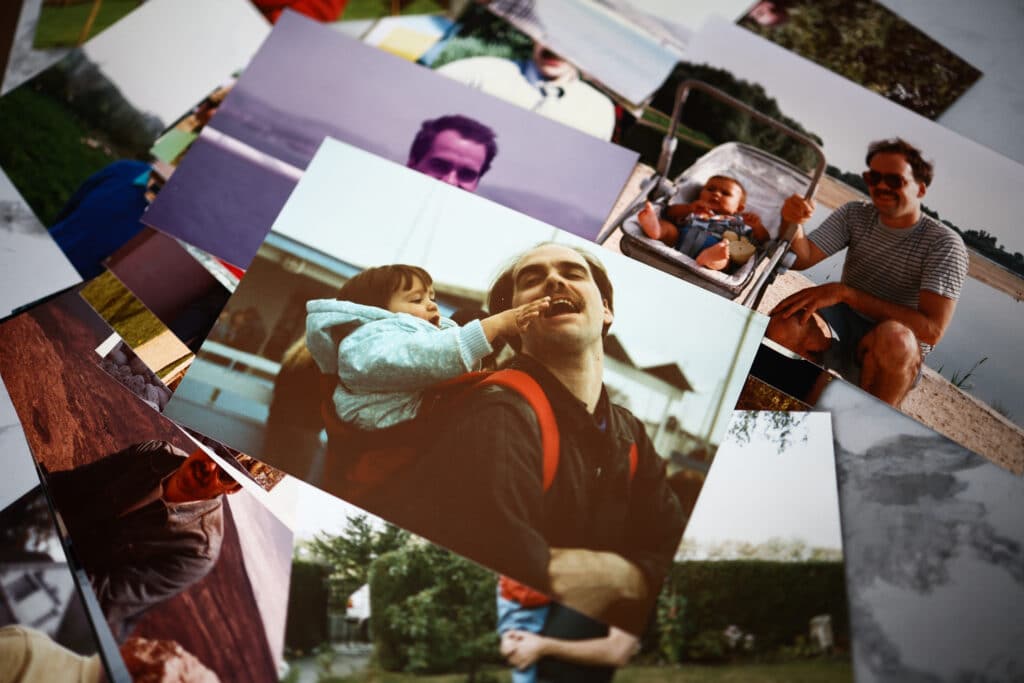‘Safer, kinder’: Assisted dying would help terminally ill

Photographs belonging to Anil Douglas of his late father who suffered from multiple sclerosis and committed suicide, are pictured following an interview with AFP in London on November 15, 2024. – Ian Douglas, a London engineer and economist suffering from multiple sclerosis, secretly took his own life in February 2019, with his illness at an advanced stage. His son Anil, who has campaigned ever since to change the law to allow assisted dying in the UK, welcomes a vote in parliament on the issue this Friday. On November 29, 2024 MP’s will debate and vote on a bill to legalise assisted dying in England and Wales. (Photo by HENRY NICHOLLS / AFP) / TO GO WITH STORY BY MARIE HEUCLIN
[Trigger warning: Mentions of self-harm, suicide]
Ian Douglas, a London engineer and economist suffering from multiple sclerosis, secretly took his own life in February 2019, with his illness at an advanced stage.
“If the bill had been in place when my father died, he could have had a much safer, kinder, more compassionate death,” he told AFP.
At his home in Walthamstow, northeast London, Anil, 35, has a photo of his mother, who died of cancer in 2008, and his father when MS had not taken over his life.
At the time of his death, he was “incredibly disabled”, had lost his physical mobility, suffered neurological pain, blisters and sores, said Anil.
“He could barely lift his hand to feed himself and was confined to one room and one chair,” he added.
With assisting a suicide punishable by up to 14 years in prison, Ian acted alone, buying pills from the dark web. He died on the eve of his 60th birthday.
“He was very determined and stubborn in the sense of not wanting to lose his independence and his physical ability beyond a certain point,” said his son.
“So, looking back on it now, I suppose it’s no surprise considering who my father was and what he was like that he chose to take control over the end of his life rather than relinquish it.”
Safeguards
Opponents of the attempt to change the law fear it could be a threat to vulnerable people, who might be encouraged to end their lives prematurely.
But Anil believes that current legislation does not protect people from coercion, forcing them instead to take “really drastic, dangerous decisions, completely isolated behind closed doors, with no safeguards”.
“That’s exactly what my father did,” he added.
After his death, Ian’s family found he had made two previous attempts to take his own life, which doctors attributed to stomach issues.
“What he did was an act of empowerment, certainly, but also it was incredibly dangerous and risky and fundamentally a really lonely choice because he had to do it by himself,” said Anil.
They also found themselves under suspicion. The police got involved and Anil and his sister both had their phones confiscated, compounding their trauma.
Anil has since become involved with Dignity in Dying, a UK campaigning organisation that supports the bill. He said he was optimistic it would go through and believes that it has enough safeguards.
Recent surveys have also indicated majority public backing.
Anil will be outside parliament again on Friday. Inside, he hopes MPs will show “courage”.
If you or someone you know is in need of assistance, please reach out to the National Center for Mental Health (NCMH). Their crisis hotlines are available at 1553 (Luzon-wide landline toll-free), 0917-899-USAP (8727), 0966-351-4518, and 0908-639-2672. For more information, visit their website: (https://doh.gov.ph/NCMH-Crisis-Hotline)
Alternatively, you can contact Hopeline PH at the following numbers: 0917-5584673, 0918-8734673, 88044673. Additional resources are available at ngf-mindstrong.org, or connect with them on Facebook at Hopeline PH.
READ MORE
Suicide: Probe ongoing on patient killed after falling from hospital building
79-year-old man kills wife, 2 adult children in murder-suicide
Disclaimer: The comments uploaded on this site do not necessarily represent or reflect the views of management and owner of Cebudailynews. We reserve the right to exclude comments that we deem to be inconsistent with our editorial standards.
